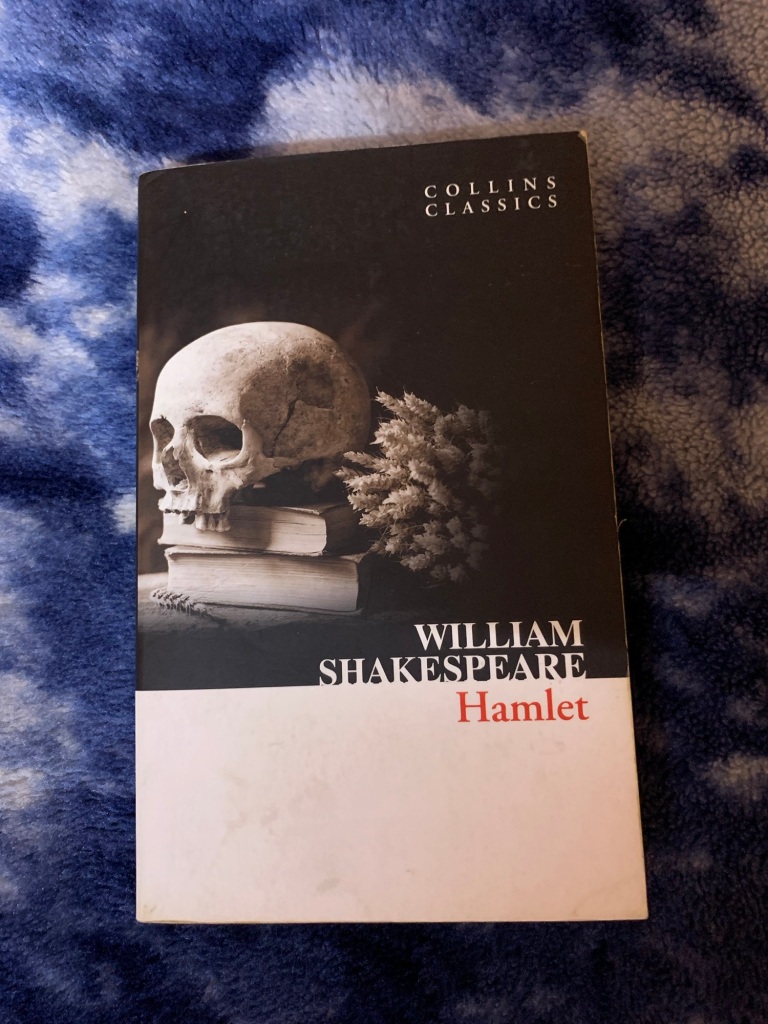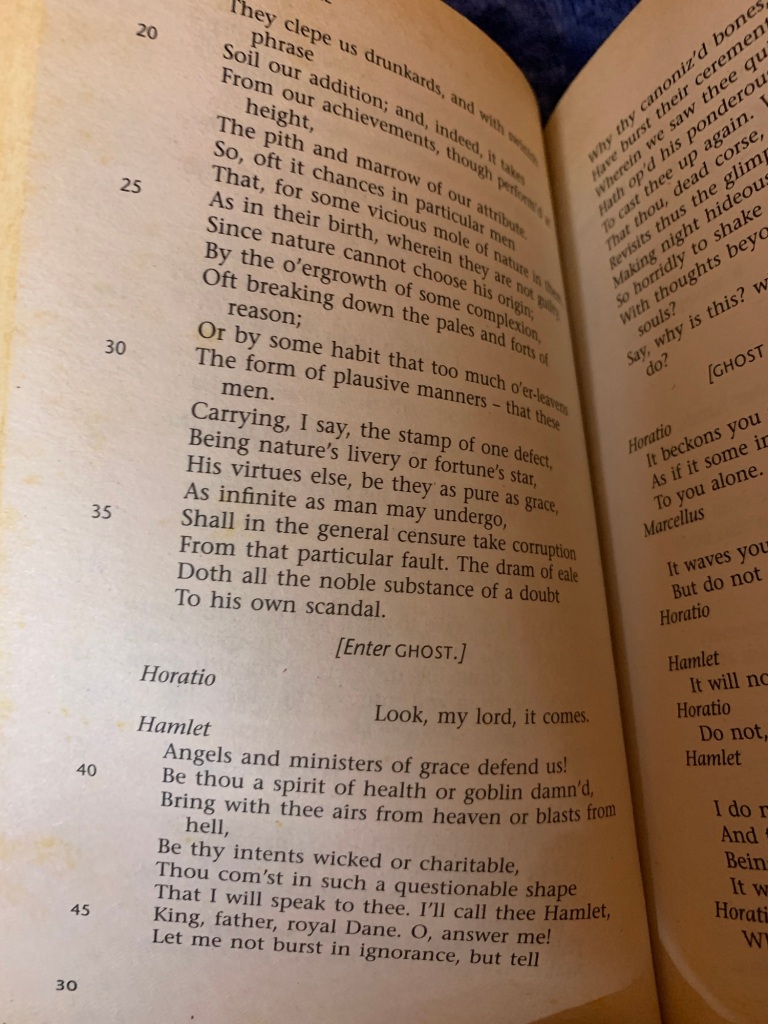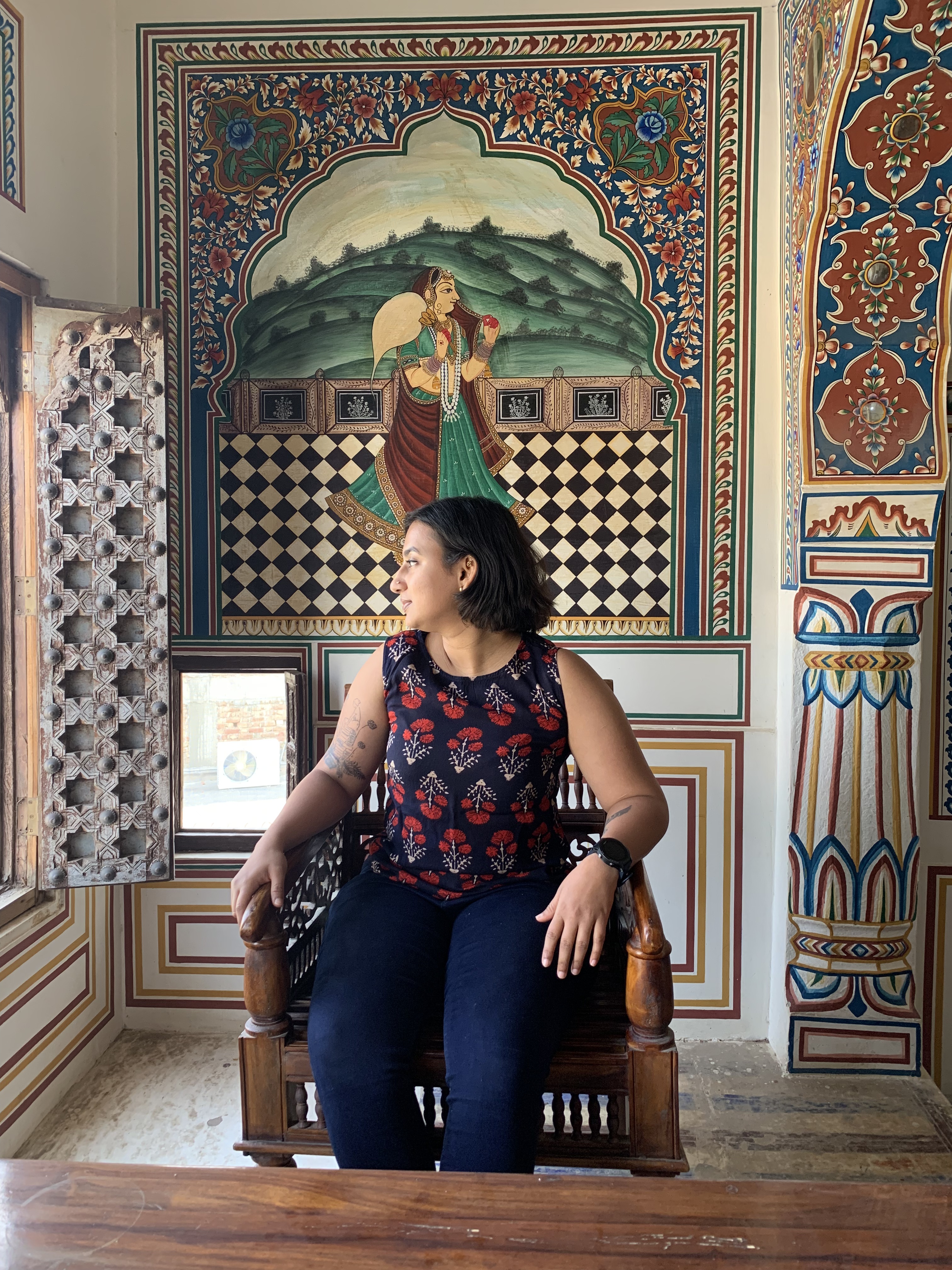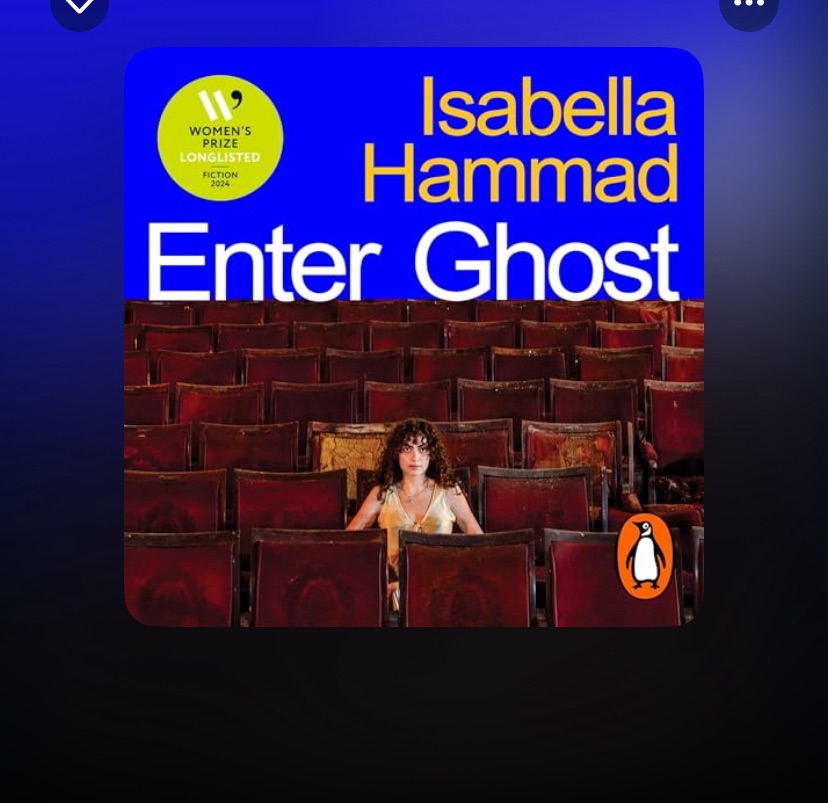Enter Ghost by Isabella Hammad is a fictional novel that reflects on the Israel-Palestine conflict through a theatre production of Shakespeare’s Hamlet in the West Bank.
I spent some time reading about the Israel-Palestine conflict, in light of the genocide happening right now. You can read a book review of a fantastic introductory work here.
Isabella Hammad’s Enter Ghost is told through the lens of a British-Palestinian woman named Sonia Nasir, an actress. Sonia, disillusioned by heartbreak, seeks a holiday in Israel where her sister still lives when she is swept up into a theatre production of Hamlet in the West Bank. The novel is a tale of national identity, belonging, violence, theatre, displacement, and adventure.
Hammad spends a good amount of time laying the groundwork to help readers understand the seriousness of the conflict in Palestine, without being too preachy about it. She shows rather than tells the ways in which the lives of Palestinians are impeded and their lives threatened on a daily basis. Right from the beginning when Sonia is held at the airport for far longer than necessary because of her Arab roots, to being held up at check-points and humiliated while travelling across territories, there are a number of examples that depict the violence of life lived under perpetual strife.
The book is also about identity, because Sonia has spent most of her life living in Britain, distanced from the conflict. Her visits to Israel and Palestine were often part of summer breaks, and she hasn’t returned since the Second Intifada. What this means is that there is a sense of detachedness and yet still a yearning to belong and be one with the land. Throughout the book we find her reflecting upon her identity vis-a-vis that of Palestine; trying to find her place in her ancestral land. The novel portrays both the conflict of the land, and that of her own privilege coming undone in the face of the everyday acts of violence.

What’s unique about this book is also its format – weaving in and out of narrative techniques. We hear from Sonia’s POV and then it switches to a theatre-script like format as though dialogues are being read out by each character. It is as though a book focused on a play is a play in itself, with myriad characters each playing their roles dutifully. There is also a lot of Shakespeare’s Hamlet because the central theme of the book is a troupe of actors trying to perform Hamlet in the West Bank. This is not just any Hamlet, but a Hamlet that can resonate with Palestinians. There’s a particularly powerful discussion where the characters are brainstorming their roles in the play. In it they try to make associations between characters in Hamlet, and the Palestinian struggle. For example, one character suggests that Gertrude could potentially stand in for the image of Palestine, wherein the politics associated with it involved a betrayal of its people for the larger struggle. The titular Ghost, who is a character in Hamlet, is an image of the Palestinian need for revenge. Maybe we agree, maybe we don’t. But I found these new interpretations of the conflict through the lens of Hamlet to be incredibly thought-provoking!
But I do have to say that knowing or being interested in Hamlet is perhaps a requirement to be able to understand and enjoy the book. ‘Enter Ghost’ is a literal stage direction in Hamlet, where the character enters the play. However, the figure of the Ghost has many connotations, for instance I interpreted it as not only Ghost the character, but the ghost of Palestine, the ghost of the lives that have lived and died in war, and the ghost of freedom and peace lurking in the distance. The ending of the book with the performance of the play is powerful, leaving us with a raw image of the violence against which such a daring performance is put forth by our cast.

As much as I enjoyed many aspects and ideas of the book, I also found it to be tedious in parts. Sonia Nasir is an unbearably dull protagonist. Her non-stop monologue about all the men she has been with, her taxing relationship with her sister, and the unnecessary romance she strikes up with a fellow cast member is exhausting, and honestly completely unnecessary to the plot. None of the characters seemed fully fleshed out and remained unmemorable to the very end. I couldn’t place who they were because they were so uni-dimensional. There is a lot of conflict between the characters that remains unexplained. I also wasn’t told why I should care about some characters over others, although it was evident the author wanted us to do so.
Additionally, I had the profound misfortune of listening to this book on Audible where the narrator has done a horrendous job. It’s possible that some of the charm of the book was lost on me because I was frustrated at the monotonous, boring narration of the narrator. There is not an emotion, enunciation, or rhythm involved in its reading. Ironic, because the book is about an actress who supposedly is phenomenal.
In conclusion, this book offers a unique perspective on the Israel-Palestine conflict through theatre, and deals with themes of displacement, belonging, and violence. The characters are dull, but the writing is sophisticated. I’m torn, but I think I’ll give Hammad another try sometime!
Enter Ghost by Isabella Hammad


Leave a comment